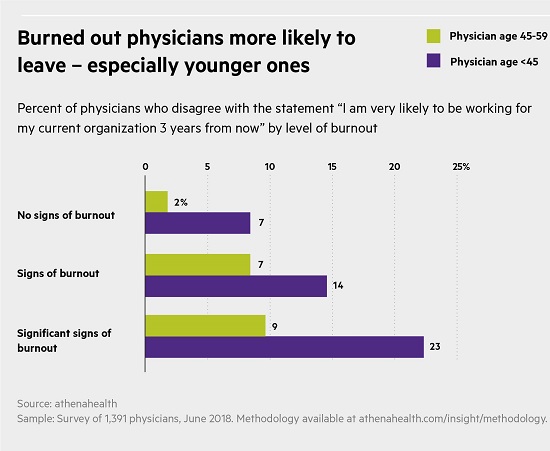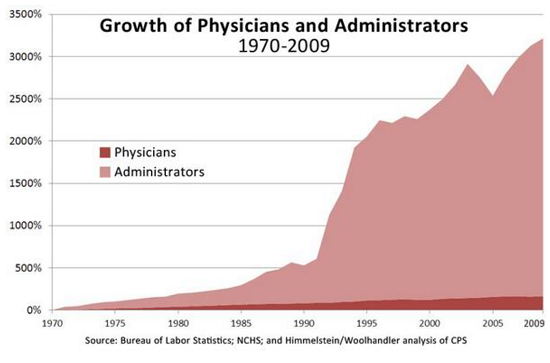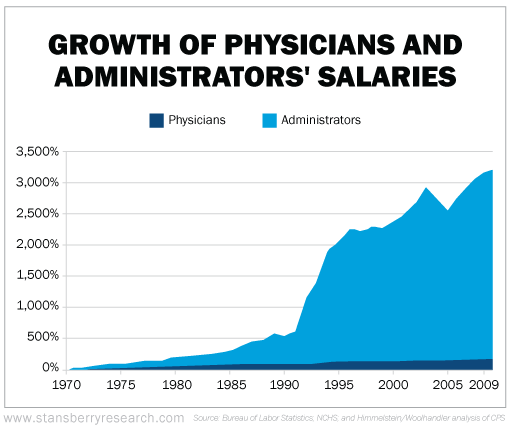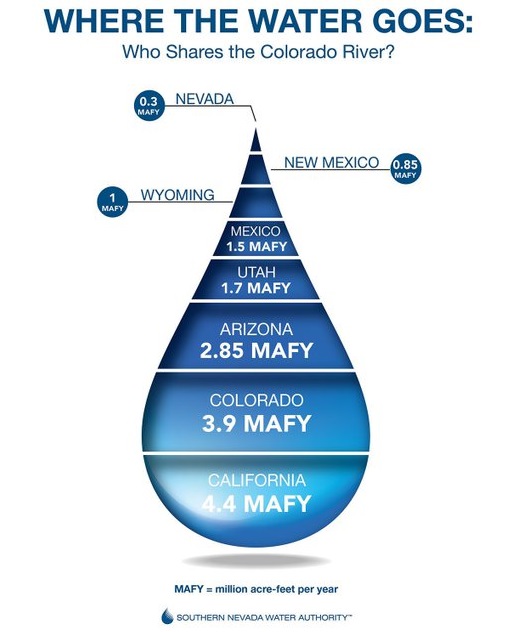Economies can burn out, too, and they’re already sliding into the final stages of burnout.
Burnout has a startling knack for sneaking up on us. We’re stressed and tired but still functioning at a high level, and then suddenly our capacity to keep going collapses. We are no longer able to function no matter how much we (or others) cajole us. We’ve burned out and there are no quick, easy fixes. We have to slowly rebuild our lives to function at a much more leisurely pace and with far lighter loads of stress and much less systemic fragility.
This process is the subject of my recent book When You Can’t Go On: Burnout, Reckoning and Renewal(sample chapter).
Economies can burn out, too. In other words, burnout is scale-invariant: we understand individuals burn out, but enterprises, cities and economies can burn out, too, for the same reasons individuals burn out.
University of California-Berkeley professor Christina Malasch pioneered research on what causes burnout.Her focus was on workplace burnout, but the dynamics she identified in toxic workplaces can also be constructively applied to all human systems, right up to the entire hyper-globalized, hyper-financialized global economy.
1. An overwhelming load of systemic stress from multiple sources (overwork, environmental damage, drought, debt, corruption, depletion, etc.)
2. A loss of control of the sources of systemic stress (workers have no control over their work, central banks can print money but they can’t print water, etc.)
3. Declining rewards for effort (workers not compensated for extra effort, positive policy initiatives thwarted by vested interests, etc.)
4. The network is toxic (the workplace is toxic, the political circus is toxic, the supply chain is toxic, etc.)
5. Injustice / unfairness is the order of the day (insiders rig the system to benefit their self-interests, “justice” is reserved for the rich and well-connected, show trials and execution by social media slander abound, etc.)
6. The system demands adhering to corrupt, destructive, venal values (the primacy of greed and self-interest, short-term gains outweigh long-term social / environmental costs, sleazy self-serving PR is the dominant form of communication, etc.)
Did you recognize all six sources of systemic burnout in the global economy? We have a winner!The sad truth is all six sources of systemic burnout are painfully obvious, and this goes a long way to explaining why the hyper-globalized, hyper-financialized global economy is unraveling in real time: the global economy is toxic to participants, the planet and the structural integrity of all human systems.
I found it difficult to pick a few examples of how economic / social systems burn out because there are so many examples. Since everyone has exposure to the medical system, let’s look at the immense expansion of the bureaucratic load on the system in the number of administrators and what they’re paid: both are off the charts when compared to physicians. (See charts.)
Unsurprisingly, young physicians are burning out. The administrators are earning big bucks rearranging the deck chairs on the Sickcare Titanic to maximize corporate profits by whatever means are available(overbilling, fraud, excessive meds and procedures, increasing workloads of staff, etc.), the frontline workforce is burning out and much closer to quitting en masse than the ill-informed public grasps.
Never mind the side-effects of the handful of meds we’ve prescribed, or where the med ingredients are sourced; make yourself comfortable on this nice deck chair here on the Sickcare Titanic. never mind that collision with the iceberg. Everything is under control, and we’ll be billing your insurer or Medicaid / Medicare shortly.
Water is in the news because it turns out, so very inconveniently, there is no substitute for fresh water and central banks can’t print more with a few keystrokes. Inconvenient indeed, as it turns out industry, energy, food and dang it all, life itself (not to mention the swimming pools of the filthy rich) depend on a reliably ample flow of fresh water–a flow that’s drying up globally.
The western U.S. is in th grip of a mega-drought, Europe is in the grip of drought and so is China. The political battle being waged by users (see chart of the claimant states using Colorado River water) has no winners, only losers. Which economic sector will dry up and blow away is now an open question globally.
The global economy’s Waste Is Growth Landfill Economy is expiring, and we’re ill-prepared to function without squandering resources via oh-so-profitable planned obsolescence, millions of vehicles sitting in traffic jams (more fuel wasted = higher GDP–we’re growing!) and bridges to nowhere.
The concluding paragraph of this article on China’s systemic water crisis cuts to the chase: reshore or perish: China’s Growing Water Crisis: A Chinese Drought Would Be a Global Catastrophe:
China-centric supply chains took decades to build and cannot be easily or quickly moved elsewhere. This is all the more reason for governments to act now to prepare key global markets for an extended water crisis in China. Nor is past experience much of a guide: when China suffered widespread multiyear droughts in 1876 and 1928, it was not the ‘factory floor of the world.’ Today’s global supply chains are woefully unprepared for a Chinese drought that could disrupt grain trade patterns and key industrial materials production across multiple continents. As China continues overexploiting groundwater amid intensified weather volatility, it moves closer each year to a catastrophic water event, and forceful steps must be taken while there is still time.
This is of course the subject of my 2021 book Global Crisis, National Renewal: A (Revolutionary) Grand Strategy for the United States (free chapter) in which I lay out a strategy to reduce the toxic load of our economy / society, restore constructive values and move to a more productive, sustainable model of social and economic vitality.
Economies can burn out, too, and they’re already sliding into the final stages of burnout. The toxic feedback loops are mutually-reinforcing and time is short. Solutions abound but not in the infinitely greedy – Waste Is Growth Landfill Economy status quo.





Recent podcasts/videos:
Save Money On Food, Get Free Gold & Silver, Beat Price Inflation (1:08 hrs)
It’s Time To End The Fed & Return To A Decentralized Currency (X22 Report, 38 min)
Charles Hugh Smith On Inequalities And The Distortions Caused By Central Bank Policies (FRA Roundtable, 30 min)
Tectonic Shift of Mercantilism Revalued (Gordon Long, Macro-Analytics, 42 min)
My new book is now available at a 10% discount this month:When You Can’t Go On: Burnout, Reckoning and Renewal.
If you found value in this content, please join me in seeking solutions by becoming a $1/month patron of my work via patreon.com.
My recent books:
Global Crisis, National Renewal: A (Revolutionary) Grand Strategy for the United States(Kindle $9.95, print $24, audiobook) Read Chapter One for free (PDF).
A Hacker’s Teleology: Sharing the Wealth of Our Shrinking Planet (Kindle $8.95, print $20, audiobook $17.46) Read the first section for free (PDF).
Will You Be Richer or Poorer?: Profit, Power, and AI in a Traumatized World
(Kindle $5, print $10, audiobook) Read the first section for free (PDF).
The Adventures of the Consulting Philosopher: The Disappearance of Drake$1.29 Kindle, $8.95 print); read the first chapters for free (PDF)
Money and Work Unchained $6.95 Kindle, $15 print)Read the first section for free
Become a $1/month patron of my work via patreon.com.
NOTE: Contributions/subscriptions are acknowledged in the order received. Your name and email remain confidential and will not be given to any other individual, company or agency.
| Thank you, Dee M. ($10/month), for your outrageously generous pledge to this site — I am greatly honored by your support and readership. | Thank you, Cada D. ($10), for your much-appreciated generous contribution to this site — I am greatly honored by your support and readership. |
